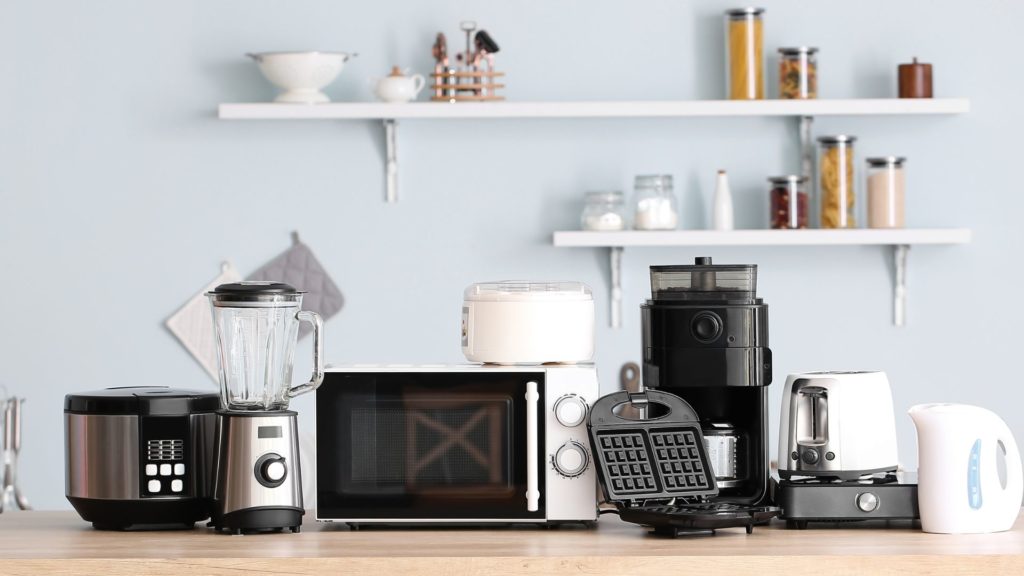Are you tired of the headache that comes with a malfunctioning refrigerator, washing machine, or dishwasher? The cost of appliance repair can be a major source of frustration for homeowners, often leaving them feeling overwhelmed and uncertain about where to turn for help. In this comprehensive guide, we will delve into the world of appliance repair costs, shedding light on the factors that influence pricing and providing valuable insights to empower you in making informed decisions for your home. Whether you’re dealing with a minor issue or a major breakdown, understanding how much appliance repair costs can save you time, money, and stress in the long run. So buckle up as we unravel the mystery behind appliance repair expenses and equip you with the knowledge to navigate this essential aspect of home maintenance.
Common Appliance Repairs
Appliance repair costs can vary widely depending on the type of appliance and the complexity of the issue. Common appliance repairs such as refrigerator compressor replacement or washer motor repair can run into hundreds of dollars, with additional costs for labor and parts. However, it’s essential to remember that regular maintenance and timely repairs can help to prevent larger and costlier issues in the future.
When considering appliance repair costs, it’s important to weigh the expense against the value of the appliance. For example, investing in a high-quality repair for a premium refrigerator might be more economical than constantly replacing cheaper models with shorter lifespans. Additionally, seeking professional advice for diagnosis and repairs can also save money in the long run by ensuring that problems are addressed accurately and effectively.
In some cases, DIY repairs may seem like a cost-effective option, but they could potentially lead to further damage or void warranties. It’s crucial to assess whether attempting an at-home fix is truly worth the risk before deciding on a course of action. Ultimately, understanding both the potential expenses involved in appliance repairs and the long-term benefits of maintaining household appliances will empower consumers to make informed decisions about their investments.
Factors Affecting Repair Costs
When it comes to appliance repair costs, several factors come into play that can significantly impact the final bill. One of the primary considerations is the type of appliance being serviced, as different appliances have varying levels of complexity and parts availability. For example, repairs on refrigerators or washing machines may be more expensive than those for smaller appliances like microwaves or toasters due to their size and intricate mechanisms.
Another crucial factor affecting repair costs is the age of the appliance. Older appliances may require more extensive repairs and sourcing obsolete parts can also drive up the overall cost. Additionally, the brand and model of the appliance can influence repair expenses as some brands may have pricier components or require specialized technicians for repairs.
Furthermore, geographical location plays a significant role in determining appliance repair costs. Areas with higher living costs typically have higher labor rates and service charges, which can impact the overall repair bill. Therefore, it’s essential for consumers to consider these various factors when budgeting for appliance repairs and seek multiple quotes to ensure a fair price.
DIY vs Professional Repairs
When facing a malfunctioning appliance, the cost of repair can quickly become a concern. Many homeowners are tempted to try DIY repairs to save money, but it’s important to consider the potential risks and hidden costs. While DIY repairs may seem like a cost-effective solution, inexperienced individuals can inadvertently worsen the problem and incur additional expenses by accidentally damaging the appliance further. Moreover, the time and effort required for DIY repairs should also be factored in, as this can often outweigh any potential cost savings.
On the other hand, professional appliance repair services offer expertise and reliability that DIY solutions simply cannot match. By enlisting skilled technicians, homeowners can ensure that their appliances are not only properly fixed but also receive thorough maintenance that extends their lifespan. Additionally, professionals provide warranty-covered services which alleviates concerns about additional costs if issues persist after the initial repair. Ultimately, while each option carries its own associated costs, investing in professional repairs offers peace of mind and long-term savings by preventing costly future breakdowns.
Average Cost of Appliance Repairs

Appliance repair cost can often catch homeowners off-guard, leaving them scrambling to find the extra cash for an unexpected expense. Whether it’s a malfunctioning refrigerator, a faulty dishwasher, or a broken washing machine, the average cost of appliance repairs can vary widely depending on the type of appliance and the extent of the damage. According to recent surveys and data analysis, the average cost of appliance repairs in the United States ranges from $100 to $350 per job.
Factors such as labor costs, replacement parts, and technician fees contribute significantly to the overall expenses. Moreover, newer or high-end appliances often require specialized expertise and more expensive parts, leading to higher repair bills. It’s crucial for homeowners to keep in mind that investing in regular maintenance and servicing can ultimately reduce long-term repair costs by extending their appliance’s lifespan and preventing major breakdowns.
Tips for Saving on Repair Costs
Appliance repair costs can often catch homeowners off guard, especially when unexpected breakdowns occur. However, there are ways to save on these expenses and even avoid them altogether. One cost-saving tip is to invest in regular maintenance for your appliances, which can prevent larger issues from developing and reduce the need for major repairs in the future. Additionally, considering DIY repairs for minor issues can help cut down on labor costs, as long as you have the necessary skills and knowledge.
Another way to save on appliance repair costs is to educate yourself about your appliances and their common issues. Understanding how your appliances work and being able to identify potential problems early on can help you address issues before they escalate into expensive repairs. Furthermore, keeping an eye out for manufacturer warranties or extended service plans when purchasing new appliances can provide added financial protection in case of malfunctions or breakdowns.
Conclusion:
The cost of appliance repair can vary widely depending on the type of appliance, the extent of the damage, and the expertise of the repair technician. It is important for consumers to weigh their options carefully and consider factors such as the age and value of the appliance before making a decision. While DIY repairs may be cost-effective for some, it is crucial to seek professional help for complex or potentially dangerous issues. Additionally, regular maintenance and timely repairs can help prolong the lifespan of appliances and prevent costly breakdowns. Ultimately, being proactive about appliance maintenance and seeking reputable repair services can save money in the long run while ensuring a smoothly functioning household. Take control of your appliance’s longevity by investing in quality repairs today!

